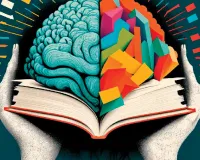AI in Healthcare Artificial Intelligence Applications and Benefits
On

Dr. Nivedita Sharma
Assistant Professor, Department of Allied and Applied Sciences, Patanjali University, Haridwar
As (AI) has already affected much of the world
As we know it, artificial intelligence has changed everything – from automating systems to improving the way we make decisions and make them. Yet, perhaps the most impactful and personal way AI is changing our world is in the field of healthcare, where it is being used to make diagnoses, create personalized treatment plans, and even predict patient survival rates.
How is AI used in healthcare?
Artificial intelligence (AI) uses computers and machine processes to simulate human intelligence and perform complex automated tasks. While they seek to mirror the capabilities of the human brain, AI-enabled machines are also able to surpass it in many ways, most notably by efficiently sifting through vast amounts of big data to identify patterns, anomalies, and trends. Not surprisingly, AI presents a wealth of opportunities for healthcare, where it can be used to improve a variety of common medical conditions AI-equipped robotic surgical equipment can be used to enhance procedures- from diagnosing diseases to identifying the best treatment plans for patients facing serious illnesses like cancer. AI-equipped robotic surgical equipment can help surgeons perform surgeries better by reducing their physical fluctuations and providing updated information during the operation.
Types of AI in Healthcare
AI is a broad term that covers a variety of distinct, but interrelated processes. Some of the most common forms of AI used in healthcare include-
• Machine learning (ML): Training algorithms using data sets such as health records to create models capable of performing tasks such as classifying information or predicting outcomes.
• Deep learning: A subset of machine learning that involves more it takes large amounts of data, training time, and layers of ML algorithms to produce neural networks capable of complex tasks.
• Neural Language Processing (NLP): Understanding human language use ML to understand information, whether verbal or written. In healthcare, NLP is used to interpret documentation, notes, reports, and published research.
• Robotic Process Automation (RPA): Administrative and the use of AI in computer programs to automate clinical workflows. Some healthcare organizations use RPA to improve the patient experience and the daily function of their facilities.
AI applications in health care
As artificial intelligence becomes more widely adopted, so are the number of ways the technology is being used across industries. Researchers don't yet expect AI to replace health care professionals. Instead, they hope to see it as supporting and improving the work of health providers and professionals in the near future. Here are some of the most common applications of AI in this field today-
• Healthcare analytics: ML algorithms are trained using historical data to generate insights, improve decision making, and optimize health outcomes.
• Precision medicine: Using AI to personalize care for patients
This is done to formulate treatment plans that take into account factors such as their medical history, environmental factors, lifestyle, and genetic structure.
• Predict diseases and illness: Using predictive models, healthcare professionals can determine the likelihood that an individual may develop a particular condition or have a disease.
• Interpret tests and diagnose diseases: ML models can be trained using common medical scans, such as MRIs or X-rays, to interpret and diagnose conditions such as cancerous lesions.
Benefits of AI in Healthcare
AI offers many benefits to the healthcare field, the professionals who work in it, and the patients who interact with it every day. While healthcare professionals can expect lower operating costs due to improved decision-making and more efficient automated services, providers can leverage technology to create customized treatment plans and diagnose conditions more quickly and accurately than they could alone. Patients can also expect potentially better health outcomes and lower costs as a result of more efficient healthcare services.
लेखक
Related Posts
Latest News
01 Dec 2024 18:59:48
योग प्रज्ञा योग - योग जीवन का प्रयोजन, उपयोगिता, उपलब्धि, साधन-साधना-साध्य, सिद्धान्त, कत्र्तव्य, मंतव्य, गंतव्य, लक्ष्य, संकल्प, सिद्धि, कर्म धर्म,...

















.jpg)




